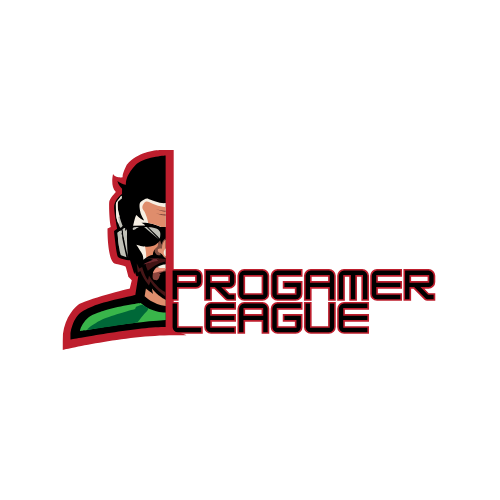Dreaming of creating the next big video game that keeps players glued to their screens? Game development isn’t just for tech wizards or those who speak fluent C++. It’s a world where creativity meets technology, and anyone with a passion for gaming can dive in. Whether you envision crafting epic quests or designing quirky characters, the journey starts with a few simple steps.
How to Get Into Game Development
Game development blends creativity with technology, offering opportunities for various skills and interests. Aspiring developers can engage with multiple aspects, from storytelling to programming.
What Is Game Development?
Game development refers to the process of creating video games. It encompasses a range of disciplines, including design, art, programming, and sound. Developers often outline concepts and mechanics, design graphics, write code, and implement audio elements. Collaboration among team members has a significant impact on the game’s overall quality. A successful development cycle includes planning stages, prototyping, testing, and refining the game before its release.
Key Roles in Game Development
Several roles contribute to the game development process. Designers focus on gameplay mechanics and user experiences. Artists create visual elements, such as characters and environments. Programmers write code to bring game features to life, while sound designers develop audio assets. Additionally, producers oversee project management, ensuring deadlines are met. Quality assurance testers evaluate the finished product for bugs and improvements. Each role plays a critical part in creating a cohesive gaming experience.
Essential Skills for Game Development
Aspiring game developers must acquire a mix of technical and creative skills. Understanding these essential skills enhances their potential in the industry.
Programming Languages to Learn
Learning programming languages forms the backbone of game development. C++ stands as a widely used choice for performance-intensive games. C# functions well with Unity, a popular game engine, making it ideal for 2D and 3D games. Python offers accessibility for beginners and can streamline scripting processes. Java also plays a role in mobile game development, especially for Android games. Familiarity with these languages equips developers with the tools necessary to bring their ideas to life.
Game Design Principles
Game design principles outline fundamental concepts that guide the development process. Mechanics define the rules and systems that govern gameplay. Dynamics focus on player interactions with game systems, shaping the player’s experience. Aesthetics encompass the artistic elements that evoke emotions and enhance immersion. Understanding these principles allows developers to create engaging and balanced experiences. Testing and iteration refine designs, ensuring games meet player expectations effectively.
Educational Pathways
Aspiring game developers have various education options to explore. These pathways enhance skills and knowledge necessary for success in the industry.
Formal Education Options
A degree in computer science or game design provides a strong foundation. Many universities offer specialized programs focusing on game development. These programs often include courses in programming, art, and design principles, ensuring a well-rounded understanding. Institutions like the University of Southern California and DigiPen Institute of Technology are known for their game design programs. Graduates often gain access to internships, networking opportunities, and hands-on projects, which increase employability in competitive job markets.
Self-Taught Resources
Numerous online platforms offer self-taught resources for game development. Websites like Coursera and Udemy provide courses covering essential skills in programming and design. Developers can learn at their own pace with tutorials and project-based assignments. Game engines such as Unity and Unreal Engine feature extensive documentation and community forums, facilitating peer support and collaboration. YouTube channels dedicated to game development also serve as valuable resources for learning new techniques. Engaging in game jams fosters practical experience, encouraging creativity and collaboration while honing development skills.
Building a Portfolio
Creating a portfolio is essential for aspiring game developers. A well-rounded collection of work illustrates skills and creativity.
Types of Projects to Showcase
Include various types of projects in the portfolio. Showcase completed games to demonstrate the ability to see ideas through to the finish. Feature prototypes that highlight unique gameplay mechanics, even if they’re not fully polished. Add art assets or character designs to emphasize creativity and artistic talent. Consider including code samples for programming skills, showcasing effective problem-solving ability. Participate in game jams to produce collaborative work, illustrating teamwork and flexibility.
Tips for Presenting Your Work
Presentation matters in a portfolio. Start with a clean, organized layout that navigates easily. Use high-quality images or videos to capture attention and convey project details. Include brief descriptions for each project, highlighting specific roles and contributions. Provide links to playable versions or downloadable assets to encourage engagement. Utilize platforms like GitHub or personal websites for better visibility. Seek constructive feedback from peers and mentors to improve the portfolio over time.
Networking in the Industry
Networking plays a crucial role in game development. It facilitates connections with industry professionals and fellow enthusiasts, enhancing opportunities for collaboration and growth.
Joining Game Development Communities
Joining game development communities can significantly boost networking efforts. Platforms like Discord, Reddit, and specialized forums offer forums for sharing ideas and questions. Engaging with local meetups or online groups connects aspiring developers with peers. Collaboration on projects fosters skill development and expands one’s network. Many communities also provide resources, mentorship, and feedback, essential for career progression.
Attending Industry Events
Attending industry events is another effective way to network. Conferences like GDC and PAX draw developers from around the world, creating opportunities for face-to-face interactions. Workshops and panels allow attendees to learn from experienced professionals. Networking sessions provide a platform to exchange ideas and experiences with industry leaders. Building relationships at these events often leads to job opportunities, collaborations, and valuable insights into industry trends.
Embarking on a journey into game development is an exciting endeavor filled with opportunities for creativity and innovation. With the right mix of technical skills and artistic vision anyone can carve out a niche in this dynamic industry. By continuously learning and honing their craft aspiring developers can create immersive experiences that resonate with players.
Building a strong portfolio and networking within the community are essential steps for success. Engaging with fellow developers and industry professionals not only opens doors but also fosters collaboration that can lead to groundbreaking projects. With passion and dedication the world of game development awaits those ready to take the leap.


